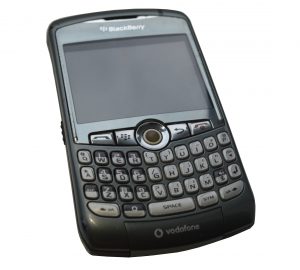 BlackBerry (NASDAQ:BBRY) will no longer be making its own phones. The production of BlackBerry devices now will be outsourced to third-party manufacturers, according to a statement from the company made on Wednesday. CEO John Chen said in a conference call with analysts, “We believe that this is the best way to drive profitability in the device business.” The outsourcing of all remaining hardware development is to be complete by Feb. 28.
BlackBerry (NASDAQ:BBRY) will no longer be making its own phones. The production of BlackBerry devices now will be outsourced to third-party manufacturers, according to a statement from the company made on Wednesday. CEO John Chen said in a conference call with analysts, “We believe that this is the best way to drive profitability in the device business.” The outsourcing of all remaining hardware development is to be complete by Feb. 28.
The manufacturers will license BlackBerry’s technology and brand. Its first major device software licensing agreement has been signed with a telecom joint venture in Indonesia. The BB Merah Putih joint venture will manufacture, distribute, and promote BlackBerry-branded devices for the Indonesian market. BlackBerry also has the option to distribute these devices outside of Indonesia. BlackBerry will start to report its hardware revenue based on the royalties it receives from those licensing agreements
BlackBerry has struggled in the mobile market for years. In recent months, the company has been facing repeated calls to stop manufacturing the hardware that was once the core of its business. BlackBerry made handsets that were highly popular with businesses and politicians. Then, the iPhone changed everything, and BlackBerry couldn’t catch up. The company claimed just 0.1 percent of the market in the second quarter, according to estimates from Gartner.
The company’s plan to outsource hardware development will reduce BlackBerry’s expenses by eliminating the need to carry inventory, as well as reducing staff and equipment costs. BlackBerry’s Chief Financial Officer James Yersh said the savings from outsourcing handset development will be “reasonable.” The handset division had about $35 million in operating expenses in the second quarter. Fewer than 100 employees within the logistics and repair areas are expected to be affected by job cuts resulting from the new company direction.
The company now intends to focus on its software and security products. The future will include new software like BlackBerry Radar and BlackBerry Hub+, a productivity suite for Android. Chen said in a statement, “We are reaching an inflection point with our strategy. Our financial foundation is strong, and our pivot to software is taking hold.” For the full fiscal year, the company expects to deliver 30 percent revenue growth in software and services.
